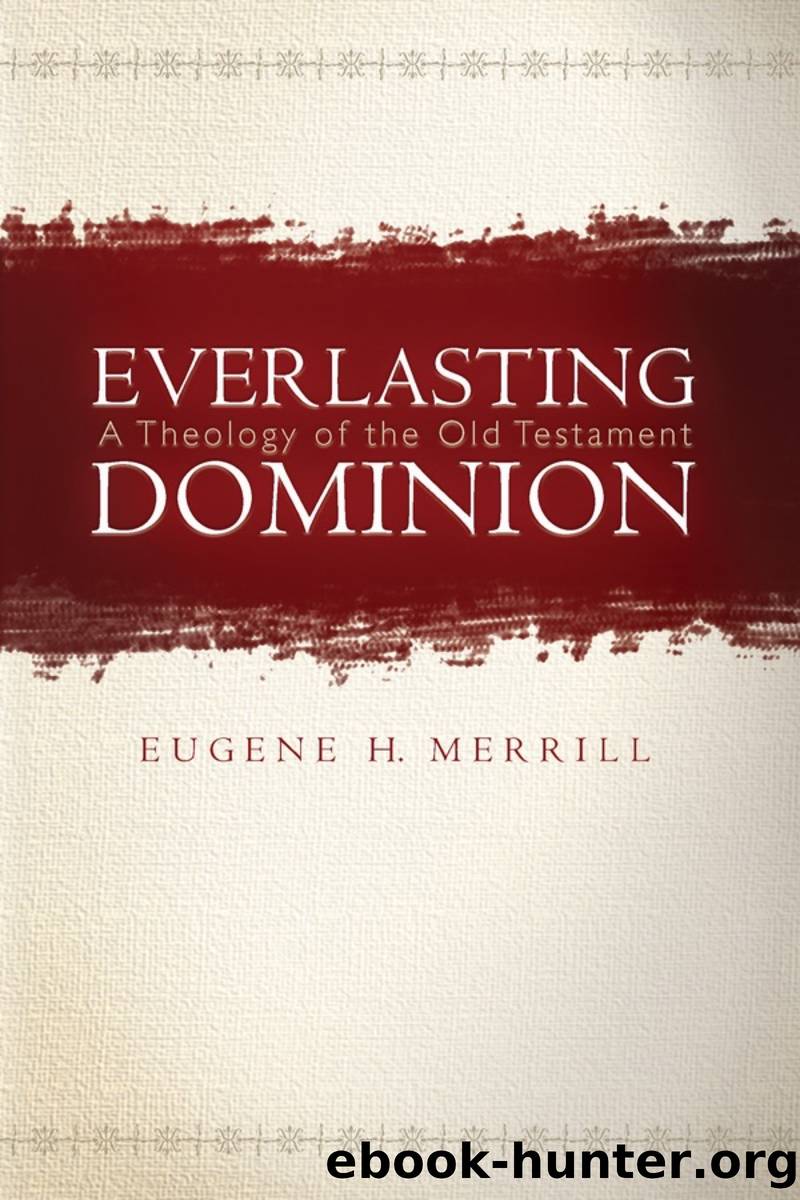Everlasting Dominion by Eugene H. Merrill

Author:Eugene H. Merrill
Language: eng
Format: epub
Tags: Religion/Biblical Studies/Old Testament/General
Publisher: B&H Publishing Group
Published: 2010-02-02T00:00:00+00:00
The Sixth Commandment
The remaining commandments appear to be graded from the most blatantly and obviously heinous to the least evidently and ostensibly violent. Commandment six states succinctly but forcefully, âDo not murderâ (Exod. 20:13), a rendering of the verb accepted by most modern versions and correctly so since the intent clearly was not to rule out homicide in war, revenge, and other cases sanctioned by law. Nor did it cover cases of manslaughter or accidental homicide inasmuch as these are by definition unintentional and therefore could not be forbidden.
Like every other commandment thus far, this too found its roots in ancient soil, long before the emergence of Israel as a covenant-bearing people. It, like them, is therefore of universal scope and has never been rescinded. However one chooses to view the Israel-church relationship is irrelevant to the fact that the Ten Commandments, though revealed in their present form to Israel, are transhistorical and transdispensational. We have already treated the text of the so-called Noahic covenant that warns that âwhoever sheds man's blood, his blood will be shed by man, for God made man in His imageâ (Gen. 9:6). We noted there that the special egregiousness of premeditated murder lies in its extinguishing of the life of one who has been created as the image of God. The only fitting punishment, then, is for government, on God's behalf, to administer the ultimate penalty of capital punishment (cf. Rom. 13:4).
Man as God's image lies at the center of the prohibition of murder because man does not just bear the image of God as though he in some way resembles God. He is in fact that image, the surrogate or vice-regent through whom God exercises his sovereignty over all creation. One might thus view mankind as the ambassador of the kingdom of heaven sent by the King of that realm to represent him on kingdom business. As such, he bears all the magisterial authority of that King and is to be treated as though he were the King. To slay him therefore is to attack God, at least symbolically, an act of sedition so severe that only the application of lex talionis is suitable as punishment. This is true whether the assailant or the victim is an Israelite or not; for, as we have already argued, the law is global in its intent, covering the full range of human interrelationships.
Download
This site does not store any files on its server. We only index and link to content provided by other sites. Please contact the content providers to delete copyright contents if any and email us, we'll remove relevant links or contents immediately.
| Guides | New Testament |
| Old Testament |
The Five People You Meet in Heaven by Mitch Albom(3543)
The Secret Power of Speaking God's Word by Joyce Meyer(3128)
Real Sex by Lauren F. Winner(2996)
Name Book, The: Over 10,000 Names--Their Meanings, Origins, and Spiritual Significance by Astoria Dorothy(2962)
The Holy Spirit by Billy Graham(2927)
0041152001443424520 .pdf by Unknown(2832)
How The Mind Works by Steven Pinker(2797)
ESV Study Bible by Crossway(2766)
Ancient Worlds by Michael Scott(2658)
Churchill by Paul Johnson(2561)
The Meaning of the Library by unknow(2548)
The ESV Study Bible by Crossway Bibles(2542)
The Gnostic Gospels by Pagels Elaine(2514)
MOSES THE EGYPTIAN by Jan Assmann(2401)
Jesus by Paul Johnson(2347)
City of Stairs by Robert Jackson Bennett(2335)
The Complete Dead Sea Scrolls in English (7th Edition) (Penguin Classics) by Geza Vermes(2267)
The Nativity by Geza Vermes(2217)
Ancient Near Eastern Thought and the Old Testament by John H. Walton(2210)
